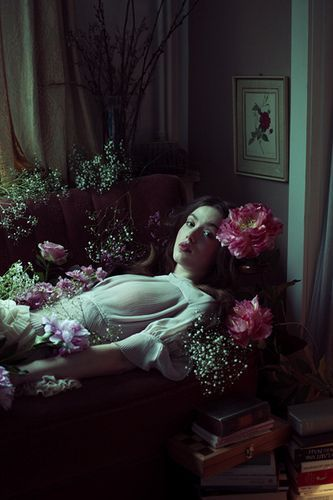
The Shrouded Woman draws in readers with its poetic, symbolically rich narrative, which can present an initial struggle to understand but eventually transforms into a beautiful journey, particularly when read in Spanish, where the unique characteristics of the language offer another layer to the story.
Love Journey
Ana Maria’s romantic journey unfolds as a touching story of heartbreak and resilience. Ricardo, her first love and close family friend, who she had a secret relationship with abandons her after discovering her pregnancy, causing deep grief and a near-suicide attempt. Ana’s following relationships, which include emotional complexities with Fernando and her husband Antonio, are shown highlighting her struggle with regaining the ability to love like she once did.
“Me habias marcado para siempre” (70)
Ana’s complicated relationship with Fernando, her confidant and lover, adds depth to her character. Despite her guilt, she finds herself drawn to him, which leads to a complex web of feelings that she struggles with throughout the story.
Her marriage to Antonio, which began as a result of post-Ricardo heartbreak, is marked by doubt and, eventually, betrayal. Ana’s newfound realization of love quickly turns into pain, which then turns into hatred after learning of Antonio’s escapades, causing her to experience deep internal despair.
Ana’s inability to fully heal from her first love left a permanent wound, which she attempts to heal through future relationships only to find herself tormented by her past.
“Sufro, sufro de ti como de una herida constantemente abierta” (97)
Family dynamics
Ana’s childhood, nurtured by Zoila, her nanny, and the emotional weight of her father’s grief over her late mother, adds layers to her character. Alicia, her sister, unlike Ana, is devoted to Catholicism but still struggles with a growing sadness that causes the gradual decline of her beauty over time. Ana’s rebellious personality and clashes with the nuns can be a foreshadowing of her complicated relationship with God later in her life.
Her two sons, Fred, her favorite, has a mysterious sixth sense, and Alberto, who Ana initially refers to as Maria Griselda’s husband, is revealed to be consumed by jealousy, causing him to isolate his wife from others because of her striking beauty. Then, Ana observes Maria Griselda and reflects on one special aspect of her affection: the ability to embrace and forgive her daughter-in-law’s beauty. This comment speaks volumes about the societal opinions and treatment of women, shedding light on how appearance continues to influence attitudes, both in past years and, to some extent, today.
Ana’s daughter, who appears to be the most deeply impacted by her mother’s death, makes Ana wish she could hear her, urging her not to cry because she will still continue guiding and supporting her daughter, regardless of her current situation. This moving picture illustrates a mother’s undying love for her children, showing that, regardless of the circumstances, a mother maintains an always present connection with them even after death.
Lastly, I want to talk briefly about Ana’s acceptance of death. Having experienced a period of limbo and getting closure, she is now able to find eternal rest. I believe the last sentence about the dead’s death refers to Ana’s sense of peacefulness and acceptance.
Discussion
One thing that I would like to know your opinions about is the way Ana turned away from God. Having grown up religious she and her sister took different religious paths. In the scene with the Father, she mentions being upset at God because it never gives her what she asks for. And although she continues to go to church it seems like she just gave up on her faith.
- Do you think Ana’s faith was affected by her life experiences?
- What/when do you think was her turning point?


Leave a comment